If Ireland is to develop its hemp industry, legislative and infrastructural changes need to be made to make things easier for farmers. But how is it for hemp farmers and processors in other countries?
A recent report from Verified Market Research stated that the global hemp industry is expected to jump in value – to over $25bn (USD) – by 2028. The potential is there and consumer demand for hemp products is growing.

Blue Sky Hemp Ventures uses state-of-the-art technology to process their hemp into its many different components - seed, fibre, dust and CBD.
Wilson Johnston is chief agronomist with Canadian hemp company Blue Sky Hemp Ventures. Based in the prairie provinces of Saskatchewan and Alberta, the company has developed a strong relationship with its farming partners and takes a “whole-plant utilisation” approach. Blue Sky currently contracts 8,000ac of farmland and, at full capacity, it says its processing facilities will be able to process 5,500t of hemp grain and over 400,000kg of hemp biomass for CBD.
When was Blue Sky Hemp Ventures established?
We were established in November of 2017.
When you started out, how many farmers were you working with compared to now?
We started out with six to eight investing growers, and have now grown to dealing with over two dozen hemp producers in Canada.
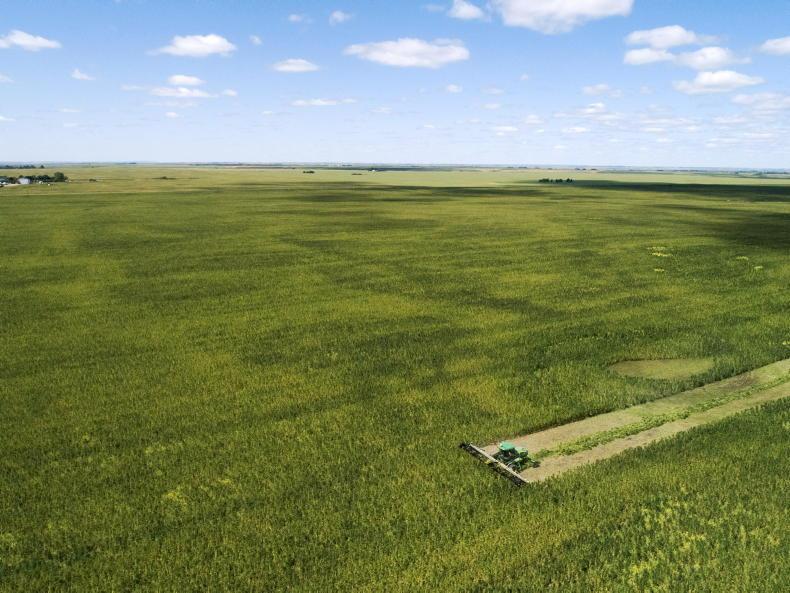
Blue Sky Hemp Ventures is based in the Canadian prairie provinces of Alberta and Saskatchewan.
How well does hemp grow in the Canadian prairies?
Hemp is a very versatile plant and seems to really excel on the Canadian prairies. There have been many varieties bred specifically for use in Canada and we only see that growing into the future. Though we can only grow one crop per year in Canada, we do rotate hemp with other crops – like cereals, pulses and other oilseeds – to limit the spread of disease and pests in the years we plant the hemp. This ensures sound agronomic practices while maintaining quality and sustainability.
Was it difficult, under Canadian legislation, to start your company? What were some of the barriers you faced (if any)?
Though it was not necessarily difficult to start the company corporately, there have been challenges in regards to meeting the Canadian Food Inspection Agency (CFIA) requirements for food, and with Health Canada licensing when it comes to cannabis products. These were some of the more difficult challenges early on in the process as [in Canada], hemp is regulated in various forms.
Now that cannabis has been legalised in Canada, are there still legislations around hemp to which you must adhere?
Yes there are. Health Canada has very specific legislations in regards to producer licensing, varietals, sales licenses and the processing of cannabis products. These legislations are evolving, but they do still present challenges, to be sure.
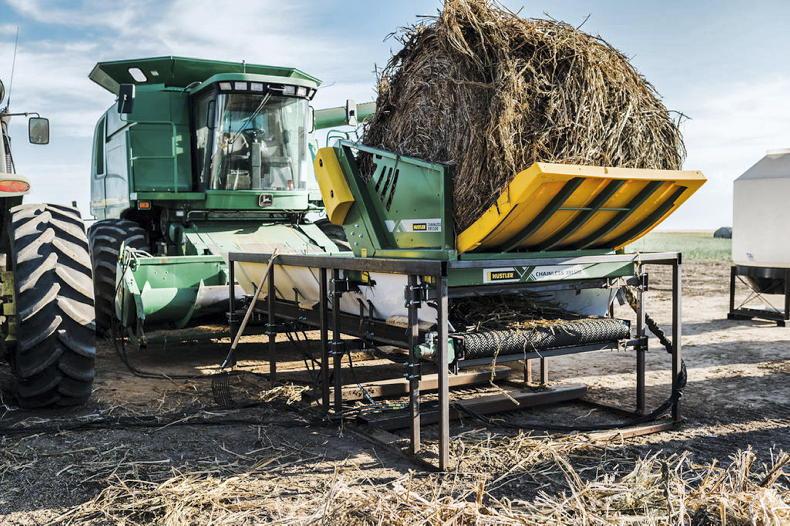
Blue Sky Hemp Ventures currently contracts 8,000ac of prime farmland.
What innovations (mechanical or otherwise) or investments in hemp have helped with the development your business?
[When we started], there was very little in the way of mechanical solutions in handling hemp seed, hemp flower and many other hemp derivatives. This has required us to be very hands-on in the whole process; essentially from the time of planting with growers until the finished product is ready for shipping.
An example of this would be our reduced flower and leaf (RFL) facility which allows us to take whole crop hemp products and separate them into useful food, CBD and fibre products.
What type of hemp do you grow? As you make use of the whole plant, is there one type which is best suited to what you do?
The majority of the hemp we grow are called “tricrop” varieties, which allow us to utilise the whole plant. The variety we are using now is called “Abound 2730”, which covers most bases well. We see the genetic evolution of the crop changing quickly, so we are always pursuing new genetics.
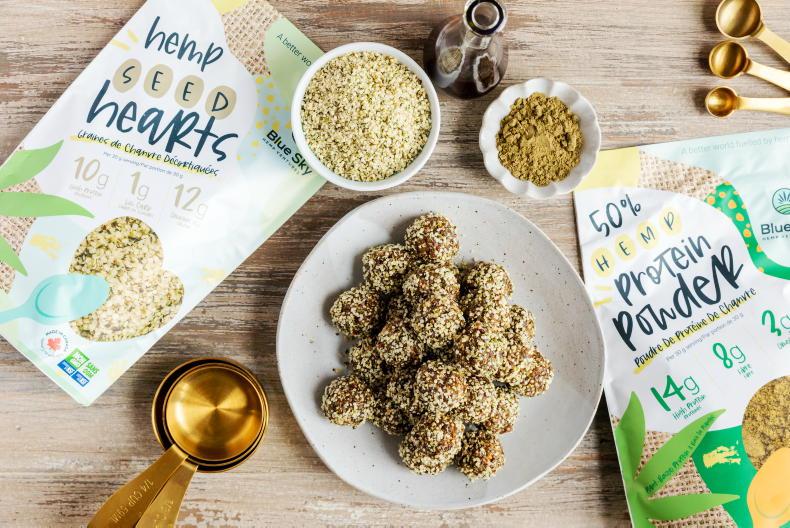
Hemp is a highly nutritious food, being a good source of vitamins, nutrients and protein.
Where do you see the future of hemp going?
We would like to see hemp share the same success as canola (oilseed rape) on the Canadian prairies, and see it grown on millions of acres.
Do the federal and/or provincial governments in your region support the hemp industry or do you feel like more of an outlier?
As the crop gains traction we see the federal and provincial bodies paying more interest in supporting the crop. As a processor, we have been actively working with government to express our challenges in hopes of removing some of the restrictions on the crop.
blueskyhempventures.com
If Ireland is to develop its hemp industry, legislative and infrastructural changes need to be made to make things easier for farmers. But how is it for hemp farmers and processors in other countries?
A recent report from Verified Market Research stated that the global hemp industry is expected to jump in value – to over $25bn (USD) – by 2028. The potential is there and consumer demand for hemp products is growing.

Blue Sky Hemp Ventures uses state-of-the-art technology to process their hemp into its many different components - seed, fibre, dust and CBD.
Wilson Johnston is chief agronomist with Canadian hemp company Blue Sky Hemp Ventures. Based in the prairie provinces of Saskatchewan and Alberta, the company has developed a strong relationship with its farming partners and takes a “whole-plant utilisation” approach. Blue Sky currently contracts 8,000ac of farmland and, at full capacity, it says its processing facilities will be able to process 5,500t of hemp grain and over 400,000kg of hemp biomass for CBD.
When was Blue Sky Hemp Ventures established?
We were established in November of 2017.
When you started out, how many farmers were you working with compared to now?
We started out with six to eight investing growers, and have now grown to dealing with over two dozen hemp producers in Canada.

Blue Sky Hemp Ventures is based in the Canadian prairie provinces of Alberta and Saskatchewan.
How well does hemp grow in the Canadian prairies?
Hemp is a very versatile plant and seems to really excel on the Canadian prairies. There have been many varieties bred specifically for use in Canada and we only see that growing into the future. Though we can only grow one crop per year in Canada, we do rotate hemp with other crops – like cereals, pulses and other oilseeds – to limit the spread of disease and pests in the years we plant the hemp. This ensures sound agronomic practices while maintaining quality and sustainability.
Was it difficult, under Canadian legislation, to start your company? What were some of the barriers you faced (if any)?
Though it was not necessarily difficult to start the company corporately, there have been challenges in regards to meeting the Canadian Food Inspection Agency (CFIA) requirements for food, and with Health Canada licensing when it comes to cannabis products. These were some of the more difficult challenges early on in the process as [in Canada], hemp is regulated in various forms.
Now that cannabis has been legalised in Canada, are there still legislations around hemp to which you must adhere?
Yes there are. Health Canada has very specific legislations in regards to producer licensing, varietals, sales licenses and the processing of cannabis products. These legislations are evolving, but they do still present challenges, to be sure.

Blue Sky Hemp Ventures currently contracts 8,000ac of prime farmland.
What innovations (mechanical or otherwise) or investments in hemp have helped with the development your business?
[When we started], there was very little in the way of mechanical solutions in handling hemp seed, hemp flower and many other hemp derivatives. This has required us to be very hands-on in the whole process; essentially from the time of planting with growers until the finished product is ready for shipping.
An example of this would be our reduced flower and leaf (RFL) facility which allows us to take whole crop hemp products and separate them into useful food, CBD and fibre products.
What type of hemp do you grow? As you make use of the whole plant, is there one type which is best suited to what you do?
The majority of the hemp we grow are called “tricrop” varieties, which allow us to utilise the whole plant. The variety we are using now is called “Abound 2730”, which covers most bases well. We see the genetic evolution of the crop changing quickly, so we are always pursuing new genetics.

Hemp is a highly nutritious food, being a good source of vitamins, nutrients and protein.
Where do you see the future of hemp going?
We would like to see hemp share the same success as canola (oilseed rape) on the Canadian prairies, and see it grown on millions of acres.
Do the federal and/or provincial governments in your region support the hemp industry or do you feel like more of an outlier?
As the crop gains traction we see the federal and provincial bodies paying more interest in supporting the crop. As a processor, we have been actively working with government to express our challenges in hopes of removing some of the restrictions on the crop.
blueskyhempventures.com








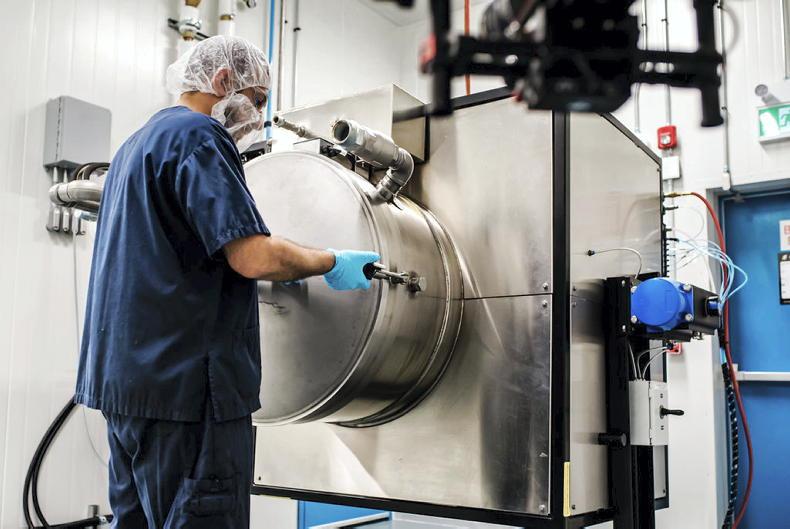

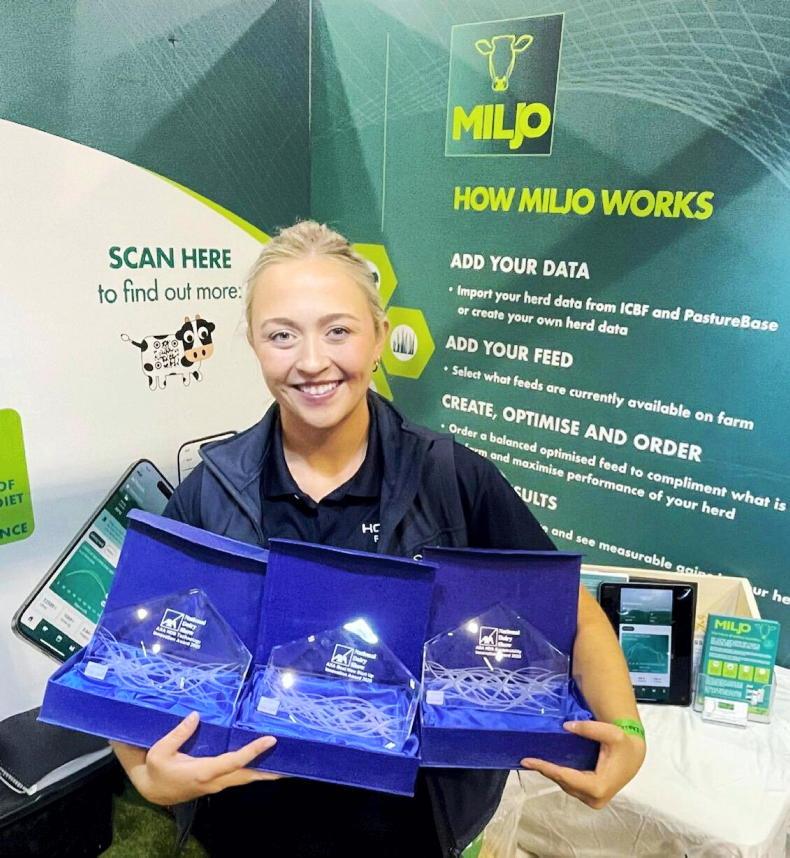
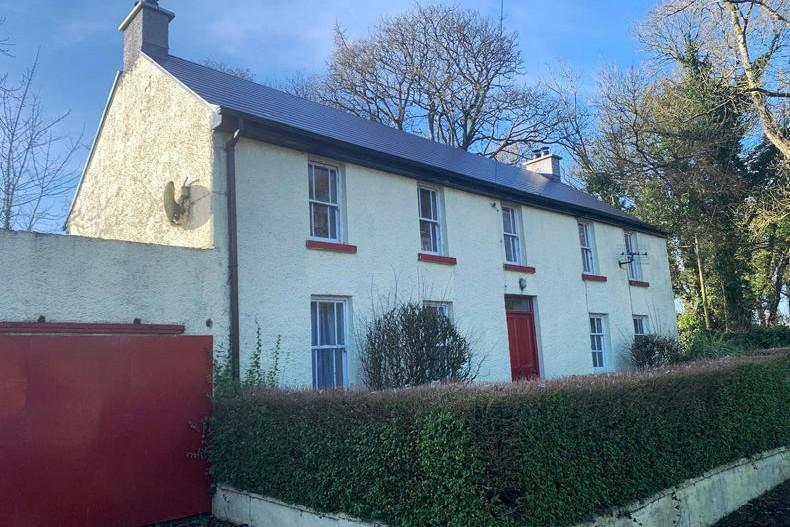
![George Lamb: ‘we have to find the sweet spot [in agriculture]’](https://s3-eu-west-1.amazonaws.com/ifj/WEBFILES/000/867/584/2372033-867584.jpg)
SHARING OPTIONS